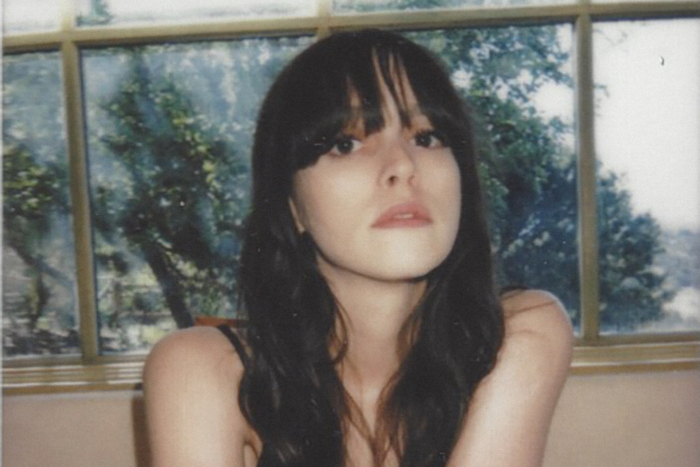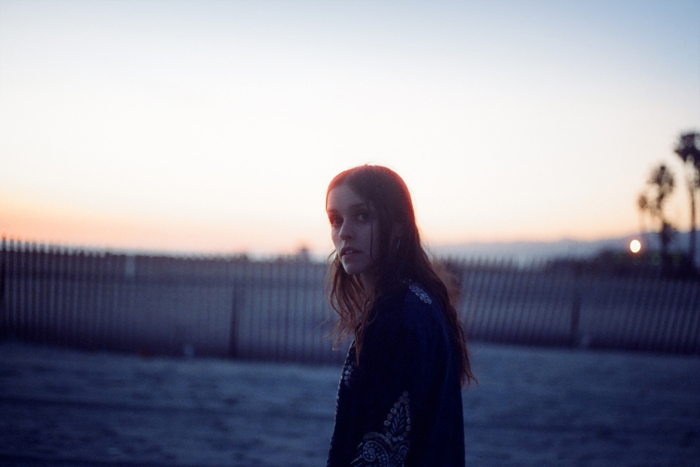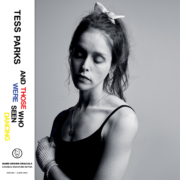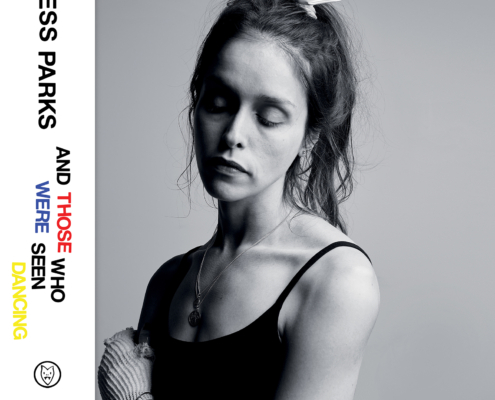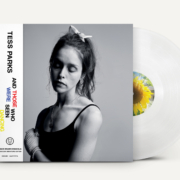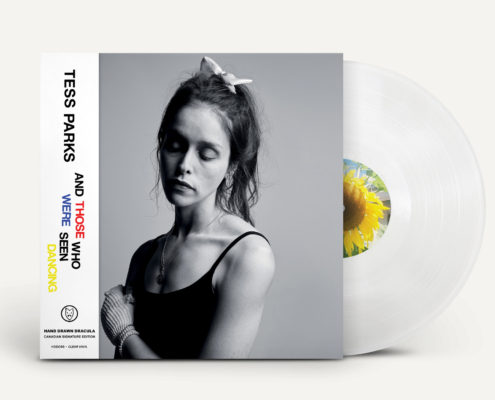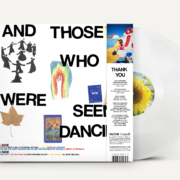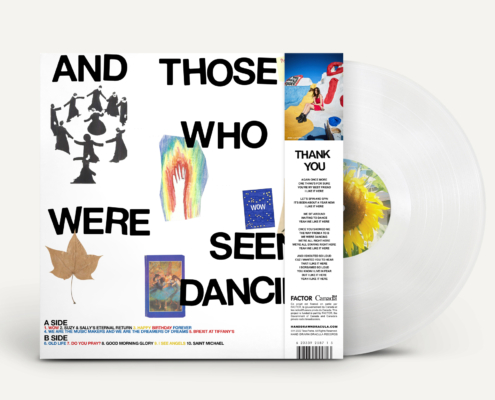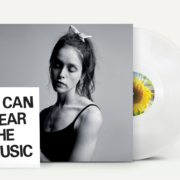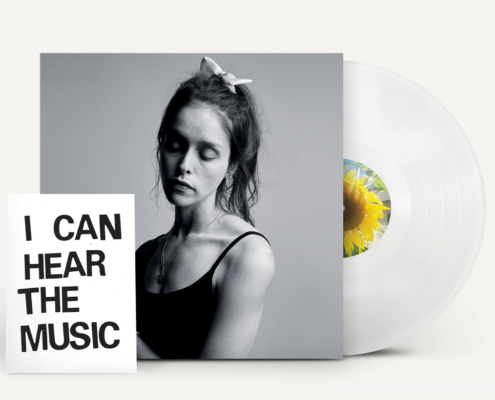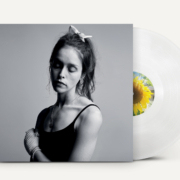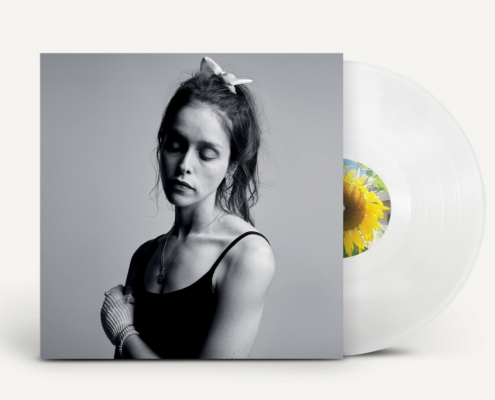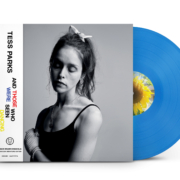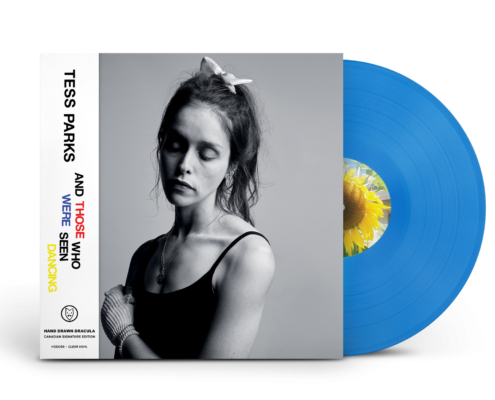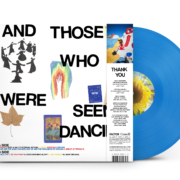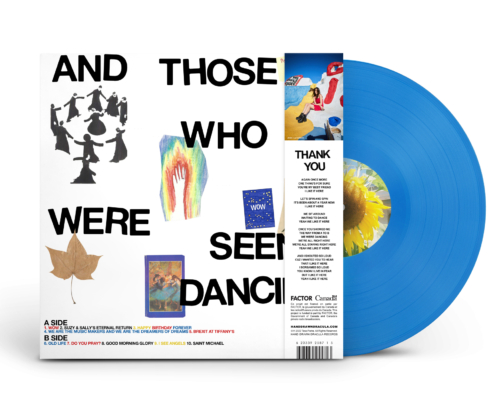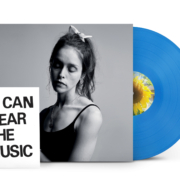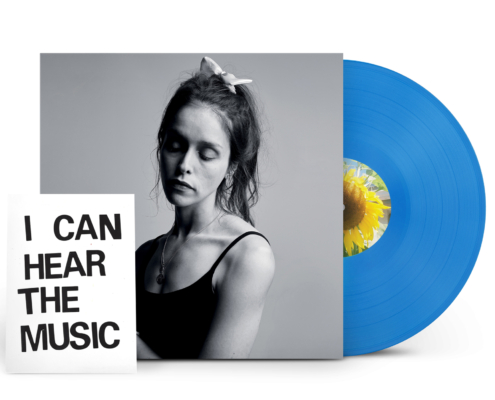Longing. Heartbreak. Levity. Joy. Being filled with love for all things. All of these sensations flow at once through Canadian singer-songwriter Tess Parks’ new album, Pomegranate. Re-establishing Parks as the consummate artist-observer against a swirling nouveau-delic backdrop, her third solo album arrives on October 25th 2024 (Fuzz Club / Hand Drawn Dracula) and was produced by multi-instrumentalist and close collaborator Ruari Meehan, who shared mixing duties with Grammy-nominated engineer Mikko Gordon (The Smile, Gaz Coombes, Arcade Fire).
Though Tess Parks first became widely known for her string of collaborations with Brian Jonestown Massacre mastermind Anton Newcombe, her 2022 solo offering And Those Who Were Seen Dancing left an indelible impression with its signature blend of weight, whimsy, and open-heartedness. The New York Times would praise its “confident, enchanting presence,” whilst Exclaim! proclaimed it as a record that “demands to be heard and felt.” Arriving almost a full decade after her 2013 solo debut Blood Hot, Dancing showcased several songs that had been sitting in gestational stages since before even Blood Hot first hit the racks. “I don’t understand the passage of time at all,” Parks says. “Days and nights sometimes feel like they have to be endured and then they blend into one and then somehow years have passed.”
Indeed, Parks’ music radiates with a sense of freedom from earthly time, which is part of what helped the childlike enthusiasm and adult weariness of Dancing coalesce so beautifully. Of course, it doesn’t hurt that Meehan and Parks enjoy an effortless creative rapport. “Ruari and I met at a Neil Young concert ten years ago,” she recalls. “What a crazy beautiful way to meet someone.” The pair soon fell into a very easeful, complementary friendship that lent itself rather naturally making music. Meehan has played in Parks’ live band for as long as they’ve known each other and has appeared on both Dancing and the Anton Newcombe collab albums, before taking on an even more hands-on production role here with Pomegranate.
“She has a lightheartedness in sad situations and vice-versa,” Meehan says, “So, if I bring a melancholic idea to her, she possesses the sensibility to make it more upbeat somehow. On the other hand, if I present her with something that sounds more celebratory on its face, she’ll inflect it with a gravity that gives it a more lifelike dimension.” If Pomegranate is any indication, Parks and Meehan have quietly gelled into one of those classic symbiotic musical pairings.
Where Dancing retained a fair measure of bedroom-demo charm, this time the canvas is bigger, with Meehan’s arrangements stretching all the way to the horizon. This is the most ambitious and cinematic Parks’ music has ever sounded. The pair are backed on most tracks by band members Francesco ‘Pearz’ Perini – whose piano and organs shine through gloriously on ‘Koalas’ and ‘California’s Dreaming’ respectively – and Marco Ninni, who provides the solid backbone throughout on drums.
On Pomegranate there are plenty of new experiments and guests, too. ‘Koalas’, for example, features the spellbinding whistling of Molly Lewis, lending a bittersweet Morricone-esque charm. ‘Crown Shy’ features soaring strings (arranged by Ninni and played by Joe Butler.) ‘Bagpipe Blues’ and ‘Charlie Potato’ are elevated by Kira Krempova’s ethereal flute playing – the latter track accompanied on Wurlitzer piano played by Oscar ‘SHOLTO’ Robertson. The euphoric ‘Running Home To Sing’ and album-closer ‘Surround’ centre the synthesiser for the first time, whilst the piano features more prominently across many of the tracks.
From a vocal perspective, Parks pushes her voice to new heights on this album. Her lyrics are sharp, ever-present, and imbued with strength, depth, and poetic purpose, which shine particularly bright on tracks like ‘Koalas’ and ‘Charlie Potato’. They weave through her flurries of beautiful melodic hooks, featuring sublime choruses and complex, multi-layered harmonic structures, especially showcased on ‘Crown Shy’ and ‘Bagpipe Blues’.
It takes a lot of trust for a distinctive songwriter in her own right to hand over the musical reins to someone else, but the faith between Parks and Meehan resounds throughout these new songs, which see the pair drawing on psychedelic elements in a way that sounds decidedly fresh. Again, dreamlike atmospheres feel oddly nostalgic and modern at the same time. “For me,” Parks explains, “it’s really important to touch on universal threads. We want this music to resonate and help heal people in some way. Ruari and I really tried to channel this music into something that sounds like now, but “all-the-time” now — something eternal that will hopefully always sound like ‘now’.”
On the way to creating Pomegranate, though, Parks and Meehan’s musical connection was severely tested. Weeks after Meehan sent Parks the backing track for “Bagpipes” in early 2020, life lurched to a halt for most of the world. By the time he sent “Koalas” in November of that year, Parks had gone through what she describes as “the most challenging dark-night-of-the-soul period of my life.” Parks couldn’t bring herself to listen to the track for months. But when she did, however, the words came to her right away.
If Dancing was the sound of a personal thawing-out process, Pomegranate tingles with a sense of rejuvenation and resilience. Resilience for highly sensitive souls, however, does not come without scars. And Parks will admit that these songs are covered in bruises. Faded, perhaps, but bruises nonetheless. We all know that pressing one’s thumb against a black and blue bruise until it hurts can feel pleasurable from time to time. Still, the point is that we’re hearing triumph captured in song — not just for Parks, but for the sheer act of seeing music through. Much like with Dancing, it’s a small miracle that Pomegranate got finished at all.
As Parks tells it, “Look – there’s so much tragedy happening in the world right now. It’s so easy to feel helpless. It feels self- indulgent to be someone singing at all from their own perspective… But if anything, this album is a gift of love, our contribution to the world of something beautiful that we made amongst so much pain… it’s our message of empowerment to keep going even when life feels unliveable and unjust – having faith that this moment will pass if you can find a way to just breathe into the next moment… Believing that the future could possibly be really bright… knowing that sharing your light really does have a butterfly effect, even in a small way within your community and your family and friends, you are capable of making a greater impact than you understand.”
“I went through a long period,” says Parks, “of feeling like I never wanted to make music again. What is the point of singing? Everything is pointless. I was taking refuge making paintings, sitting in silence for hours. There was a lot of processing to do. I am so grateful that I was given the encouragement to continue creating with sound, and that’s what Ruari has done for me. It seems only right to give back that encouragement to others.”













